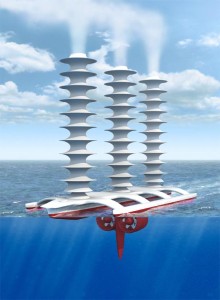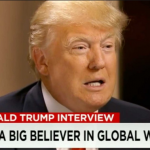Why the free market alone can’t protect us
Excerpt from Climate-proof Your Family Budget.
To be published in 2016.
When it comes to handling problems today, many Americans believe the free market offers self-correcting mechanisms that are better than government regulation, and that we can count on capitalism to produce and sell what we need to dodge the costly effects of warming. How? Well, carbon sequestration, geoengineering, and other inventions are being touted as a contribution the free-enterprise system could make to solving our problems.
But it’s hard to see the business incentive.
Today it should be obvious that corporate leaders have very little reason to climate-proof us from the effects of global warming. And who can blame them? To prevent further warming, we’d be asking them to
– replace a profitable fossil fuel industry with a new untried one,
– to trash the value of some big corporate assets, like oil fields, and
– to rapidly reduce sales of some popular products, like meat or light trucks.
To protect against the effects of warming, we’ll need businesses to do things like
– suppress real estate development on big watershed tracts,
– consider fresh water supplies to be a public good instead of a private asset,
– boost certain household costs so families are pushed to change generations-old habits,
– finance major construction projects whose only payback is public cost avoidance, and
– ease the effects of warming on the poor.
What business leaders wouldn’t throw up their hands? The benefits to corporate shareholders just aren’t there.
Where will effective incentives come from? Remember that letting the free market solve problems doesn’t mean letting business solve them. The free market isn’t a bunch of companies; it’s us, the consumers. If we want to get free enterprise to solve a problem, we need to create demand, to provide a big incentive to meet our market needs.
How do we start to give businesses enough dollars-and-sense reasons to become part of the solution, not the problem? A carbon tax would be a hell of a start! After all, it operates on consumer demand. And it’s a conservative idea.
Otherwise, American families are going to need lots of self-reliance when it comes to climate-proofing our lives.




